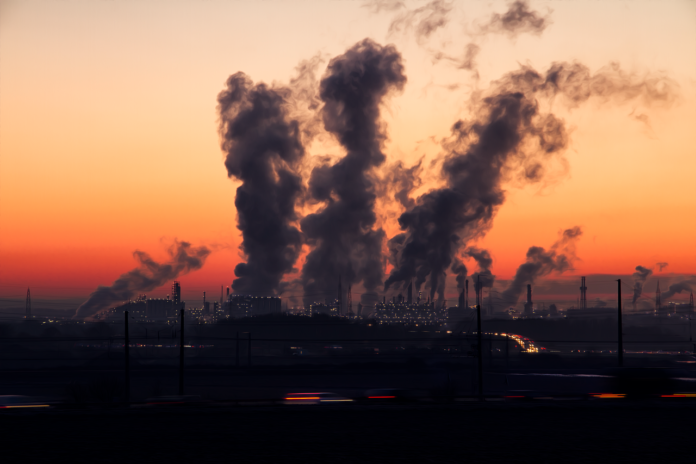Air pollution is a detrimental issue that has been a growing concern for the entire world. It is a phenomenon that refers to the release of harmful substances into the atmosphere, leading to undesirable changes in the natural environment. The main contributor to this issue is human activities, such as industrialization, transportation, agriculture, and energy production. These activities have significantly increased in the last few decades, leading to a decrease in air quality. This has become a pressing issue in society today, and its consequences are far-reaching and severe. In this article, we will discuss the causes and effects of decreasing air quality, and why it is a growing concern in today’s world.
One of the main reasons for the decrease in air quality is the excessive use of fossil fuels, which are the primary source of energy in our modern world. Fossil fuels, such as coal, oil, and natural gas, are used for transportation, electricity generation, and heating and cooling systems in our homes and buildings. When these fuels are burned, they release a significant amount of pollutants, such as carbon monoxide, sulfur dioxide, nitrogen oxides, and particulate matter, into the air. These pollutants not only decrease the quality of the air we breathe but also contribute to the formation of smog and acid rain.
Another contributing factor to air pollution is the rapid growth of industrialization. Industries, such as manufacturing plants and factories, emit large amounts of pollutants into the air, including toxic chemicals and heavy metals. These emissions not only decrease the quality of the air but also have a harmful impact on human health. People living in areas with a high concentration of industrial facilities are at a higher risk of respiratory illnesses and other health problems.
The transportation sector is also a major contributor to decreasing air quality. The burning of gasoline and diesel in cars, trucks, and other vehicles releases a variety of pollutants, such as carbon monoxide, nitrogen oxides, and volatile organic compounds, into the air. These pollutants not only contribute to air pollution but also have a significant impact on climate change. The increase in greenhouse gases from transportation emissions leads to the trapping of heat in the atmosphere, causing global warming and its effects, such as extreme weather events and sea level rise.
Agricultural activities, such as livestock farming, also play a significant role in air pollution. Animal waste, fertilizers, and pesticides used in agriculture release harmful chemicals into the air, contributing to the decrease in air quality. In addition, the burning of crop residues and forest fires, often used as a method of land management, also release large amounts of pollutants into the air.
The decrease in air quality has severe consequences on both human health and the environment. Polluted air can cause or worsen respiratory illnesses, such as asthma and chronic bronchitis, and can also lead to cardiovascular diseases and various types of cancer. It also has a negative impact on the environment, causing harm to plants, crops, and ecosystems. Air pollution is also a major contributor to climate change, which has detrimental effects on the planet, such as rising ocean levels, natural disasters, and loss of biodiversity.
Furthermore, decreasing air quality also has a significant economic impact. The healthcare costs associated with air pollution-related illnesses and lost productivity can be substantial. It also affects tourism and cultural heritage sites, as visitors are deterred from visiting areas with poor air quality.
In conclusion, the decrease in air quality is a critical issue that needs immediate attention. It is a global problem that affects not only human health but also the environment and the economy. Our modern way of living, with its heavy reliance on fossil fuels and industrialization, is the main cause of air pollution. However, this does not mean that we cannot take action to improve the quality of the air we breathe. It is our responsibility to make conscious choices and take steps to reduce our contribution to air pollution. This can be achieved by using renewable sources of energy, implementing stricter regulations for industries, investing in sustainable transportation options, and promoting sustainable agricultural practices. Only by working together as a society and taking proactive measures can we improve air quality and ensure a healthier and more sustainable future for ourselves and for generations to come.

